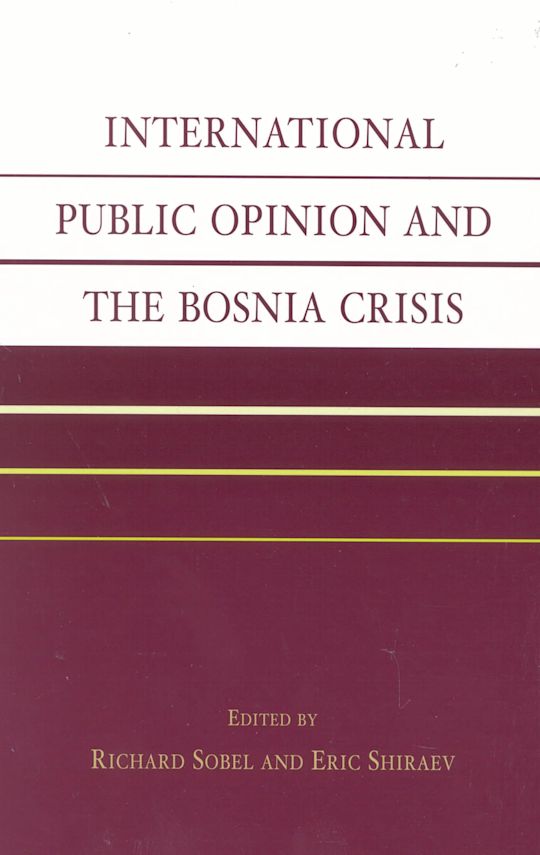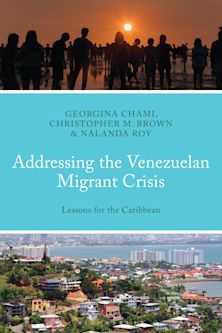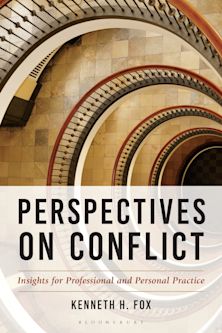- Home
- ACADEMIC
- Politics & International Relations
- Politics - Other
- International Public Opinion and the Bosnia Crisis
International Public Opinion and the Bosnia Crisis
Richard Sobel (Anthology Editor) , Eric Shiraev (Anthology Editor) , Paolo Bellucci (Contributor) , Erin Carrière (Contributor) , Philip Everts (Contributor) , Lise Morjé Howard (Contributor) , Marc Morjé Howard (Contributor) , Pierangelo Isernia (Contributor) , Karin Johnston (Contributor) , Steven Kull (Contributor) , Marc O'Reilly (Contributor) , Clay Ramsay (Contributor) , Deone Terrio (Contributor) , Richard Vengroff (Contributor) , Robert J. Wybrow (Contributor) , Robert Shapiro (Foreword)
International Public Opinion and the Bosnia Crisis
Richard Sobel (Anthology Editor) , Eric Shiraev (Anthology Editor) , Paolo Bellucci (Contributor) , Erin Carrière (Contributor) , Philip Everts (Contributor) , Lise Morjé Howard (Contributor) , Marc Morjé Howard (Contributor) , Pierangelo Isernia (Contributor) , Karin Johnston (Contributor) , Steven Kull (Contributor) , Marc O'Reilly (Contributor) , Clay Ramsay (Contributor) , Deone Terrio (Contributor) , Richard Vengroff (Contributor) , Robert J. Wybrow (Contributor) , Robert Shapiro (Foreword)
This product is usually dispatched within 1 week
- Delivery and returns info
-
Free US delivery on orders $35 or over
You must sign in to add this item to your wishlist. Please sign in or create an account
Description
Does public opinion matter in international conflict resolution? Does national foreign policy remain independent of public opinion and the media? International Public Opinion and the Bosnia Crisis examines, through U.S., Canadian, and European case studies, how public reaction impacted democratic governments' response to the ethnic and religious conflict in Bosnia during the period from 1991-1997. Each case study offers an overview of the national media coverage and public reaction to the war in the former Yugoslavia and examines the links between public opinion and political and military intervention in Bosnia. The result is a comprehensive evaluation of the complex relationship between public opinion, media coverage, and foreign policy decision-making.
Table of Contents
Chapter 2 "In the Service of Peace": Reflexive Multilateralism and the Canadian Experience in Bosnia
Chapter 3 British Attitudes toward the Bosnian Situation
Chapter 4 U.S. Public Opinion on Intervention in Bosnia
Chapter 5 Raison d'état or Raison populaire? The Influence of Public Opinion on France's Bosnia Policy
Chapter 6 Russian Decision-making Regarding Bosnia: Indifferent Public and Feuding Elites
Chapter 7 Massacring in Front of a Blind Audience? Italian Public Opinion and Bosnia
Chapter 8 Innocence Lost: The Netherlands and the Yugoslav Crisis
Chapter 9 German Public Opinion and the Crisis in Bosnia
Part 10 Public Opinion and the Bosnia Crisis: A Conclusion
Product details
| Published | Dec 17 2002 |
|---|---|
| Format | Hardback |
| Edition | 1st |
| Extent | 344 |
| ISBN | 9780739104798 |
| Imprint | Lexington Books |
| Dimensions | 9 x 6 inches |
| Publisher | Bloomsbury Publishing |
About the contributors
Reviews
-
. . . this is an excellent book, one that belongs on a short list of indispensable recent books on public opinion and foreign policy. . . .
H-Net: Humanities and Social Science Reviews Online
-
In this highly original volume, Richard Sobel and Eric Shiraev advance research and theory in the study of public opinion and foreign policy. International Public Opinion and the Bosnia Crisis is unique in that it tracks a single foreign policy crisis across different countries. Following Ole Holsti's apt advice, the contributors use cross-national data and other evidence to look at the extent to which public opinion influenced foreign policy in a critical case. Editors Sobel and Shiraev offer a necessarily complex theoretical framework, befitting the complexities of the different forms of contemporary democratic politics and the foreign policies that have to be wrestled with, which they, their contributors, and others of us will want to debate, criticize, and build upon or alter. In doing this we can attempt both to advance political science theory and to improve our understanding of real-world politics and, ideally, to provide guidance as nations individually and interactively confront new crises and wars.
Robert Y. Shapiro, Columbia University



































